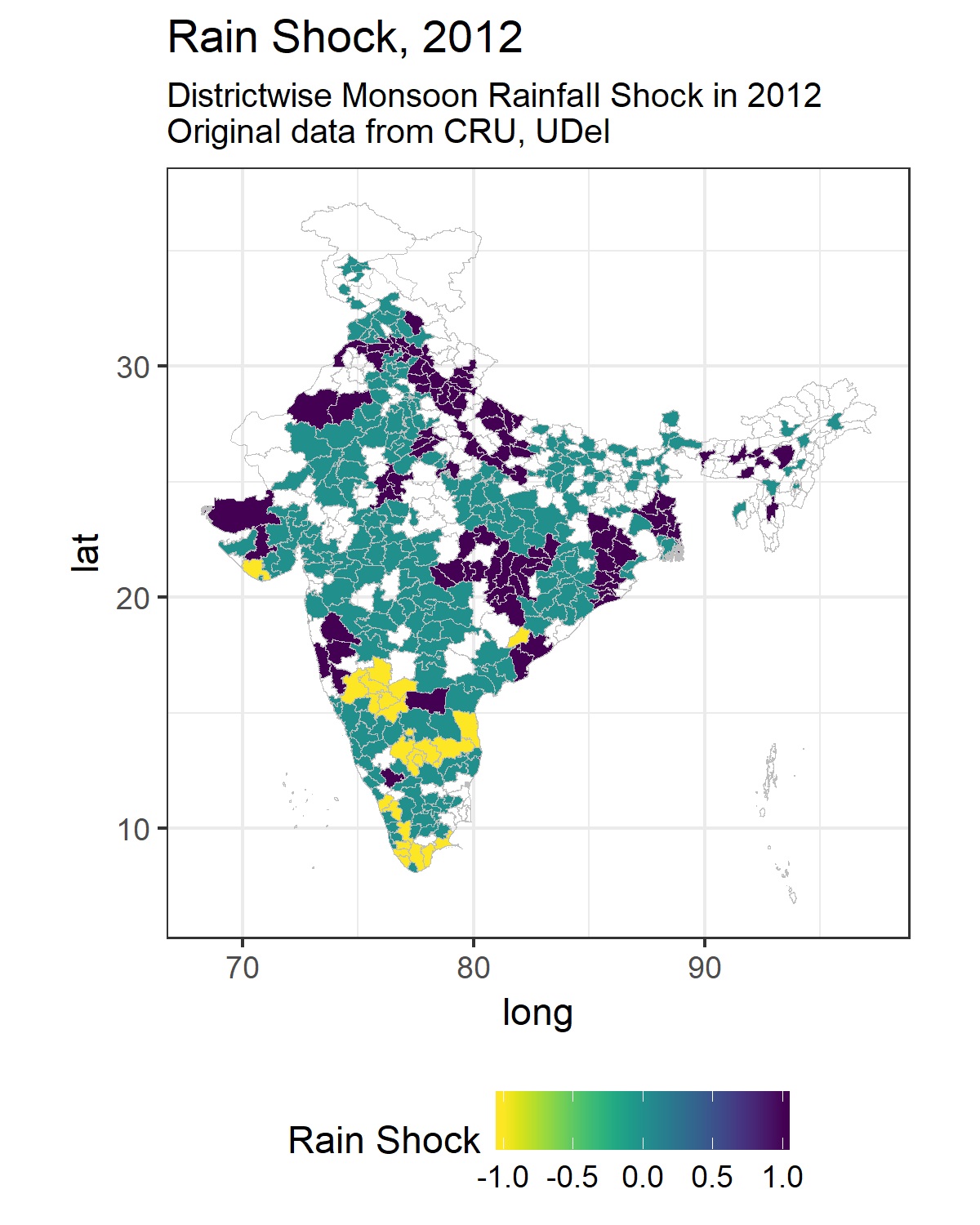 Districtwise Rainfall Shock in 2012
Districtwise Rainfall Shock in 2012
Vulnerability of Households to Weather Shocks and the Mitigating Role of Workfare Programs
Abstract
Weather shocks pose significant income risks. Using a large household panel survey in India and geo-coded climate data, I find that rainfall shocks reduce income by 7%. It shrinks consumption and assets while increasing household-debt. Rainfall shocks exhibit significant heterogeneity. It predominantly affects the asset-poor and the rural households who typically rely on agriculture or non-agricultural wage incomes. Its impact also varies geographically. I then examine if the roll-out of a major public workfare program improved earnings of its participants in districts that were exposed to rainfall shocks. Using a difference-in-difference strategy and the phased roll-out of the program, I find that it primarily benefits female-headed households. Thus, intensifying workfare programs could increase climate resilience for the most vulnerable population.